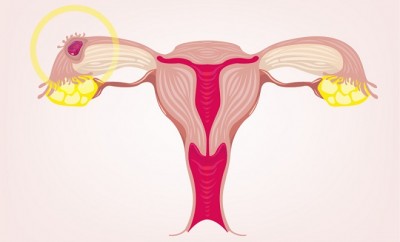How Long Does Implantation Bleeding Last?
When a woman first begins to think that she may be pregnant, or when she has spent months trying to conceive, she wishes for a ‘neon sign’ that says either “Yes” or “No”. The problem is that early symptoms do not normally come in the “neon sign” kind of way. Often a woman has the feeling of being tired, cramping, or other common premenstrual symptoms. Some of the luckier have implantation bleeding and this is one of the clearest signs. On the contrary, sometimes a woman may believe she is having implantation bleeding, when in fact it is simply a period`s first day or just early menses. The best way to find out the real cause of spotting is to know how long implantation bleeding may last and to compare it with the period`s duration.
What is Implantation Bleeding?
Implantation bleeding is a common process, during which the embryo attaches to the lining inside the woman’s uterus. Often, this bleeding happens between the 6th and 12th days after the embryo has formed, or somewhere between the 2nd and 7th days before period. It does take some time for the fertilized egg to travel to the uterus and implant itself into the inner lining. That`s why implantation bleeding does not start immediately after the egg-fertilization.
When it happens, the woman may have slight cramping and notice a few spots of blood, pink or brown in color, when she goes to the bathroom. In some cases it may also be yellowish and have just a few streaks of blood in it.
This is not something every woman will definitely experience or at the very least notice. Some women may have multiple pregnancies and only notice implantation in one or two of them. It depends on the woman and the development of pregnancy. Often the bleeding, if there is any, will only look like several blood drops, that are overlooked or flushed before they could be noticed. Especially if the woman does not suspect she may be pregnant, so she is not looking for any symptoms of conception.
The woman who keeps close watch on her menstrual cycle is more likely to distinguish implantation bleeding from pre-period symptoms, especially if she has a spotty day several days before her normal period begins. However, even the most observant women may miss this first symptom of pregnancy.
How Long Does Implantation Bleeding Last?
Knowing how long implantation bleeding may last is very important, because a woman who is bleeding excessively during pregnancy could signify a problem with the baby and take all the necessary precautions timely. Before you worry though, keep in mind, that even a woman who is having a healthy pregnancy may have times when she experiences spotting. It happens mostly during the earliest part of conception. It may come right at implantation or after sex with the partner. Therefore, if you do notice a spot of blood on your panty-liner or on used toilet paper, this does not necessarily mean that there is something wrong. It simply bears watching.
Implantation bleeding does not last the same amount of time for everyone. Each female and each pregnancy are different. In general, if you see blood during implantation, you will notice it only one time or perhaps twice. If you see discolored discharge for more than two days, you may become a little concerned, but it usually does not signify a problem.
The reason of spotting is simple. When implantation occurs, any blood that appears as a result of egg-embedment will not come out quickly. It will slowly leak out of your cervix and into your vagina. Eventually, it will make its way out and finally appear on your underwear or toilet paper. The length of time during which you may “see” it will depend on how much blood was released in the process of egg attachment and how long it takes for your body to get rid of it. In most cases women pass all of it within a couple of hours, though, in some extreme cases bleeding may last even two days. Spotting which lasts more is rather rare.
If you suspect that you may be pregnant and you feel the spotting you experience several days is implantation bleeding, you may want to consult your doctor to make sure that there is nothing else going on. Even though implantation bleeding is considered a common early symptom of a healthy pregnancy, excessively heavy bleeding or bleeding for more than 2 days is not normal.
Is It Implantation Bleeding?
Just because you see spotting, it does not mean implantation has happened. It could be the first day of your period or some other medical issues. The way to know the difference is to know your body before implantation. To do this, you must track your normal menstrual cycles and pay attention to how they start. The ideal option is to use a basal thermometer for the menstrual cycle.
Some women start their periods heavy while others spot first. Some women have cramping days before, some have it only after they start their period. Know your body and how it normally responds to you monthly. If it does not feel like your menstrual cycle and you have had unprotected sex, pay attention not only to the heaviness of spotting, but also to its duration.
If you feel it is implantation and do not want to wait until your period to know for sure, you may take a home pregnancy test. However, remember that first implantation happens and you become pregnant only after the proper egg embedment, so the HPT may not be accurate. Try to take your first morning urine for testing, because the HCG level in such a case will be higher.
Possible Problems
Once you are certain that you are experiencing implantation bleeding instead of your period, if you notice that it is lasting too long or you have pain and an increase in bloody discharge, you need to contact your doctor. You may be having a miscarriage or an ectopic pregnancy. Both types of abnormalities are dangerous for your health, therefore seeing a doctor immediately is strongly recommended.
Whether you are trying to get pregnant or you simply notice spotting during a time when you are not supposed to have your menstruation, keeping track of your monthly cycle and understanding how long implantation bleeding lasts is important. The sooner you know that you are pregnant, the faster you can start on vitamins and other things to help you and your baby have healthy and enjoyable next few months.













